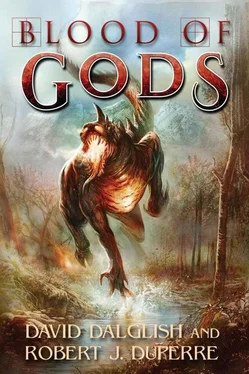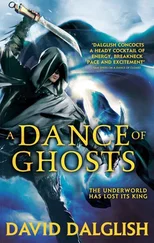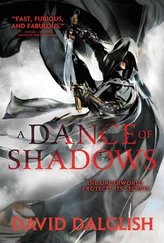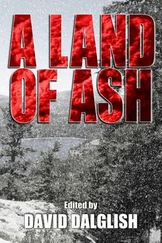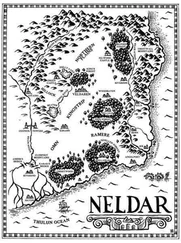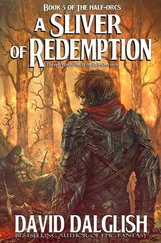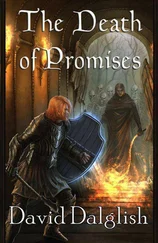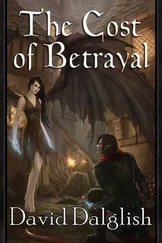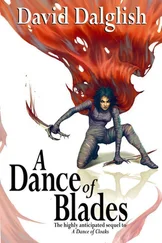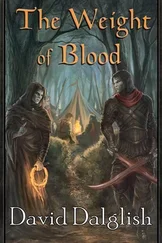David Dalglish - Blood Of Gods
Здесь есть возможность читать онлайн «David Dalglish - Blood Of Gods» весь текст электронной книги совершенно бесплатно (целиком полную версию без сокращений). В некоторых случаях можно слушать аудио, скачать через торрент в формате fb2 и присутствует краткое содержание. Год выпуска: 2014, Издательство: 47North, Жанр: Фэнтези, на английском языке. Описание произведения, (предисловие) а так же отзывы посетителей доступны на портале библиотеки ЛибКат.
- Название:Blood Of Gods
- Автор:
- Издательство:47North
- Жанр:
- Год:2014
- ISBN:нет данных
- Рейтинг книги:4 / 5. Голосов: 1
-
Избранное:Добавить в избранное
- Отзывы:
-
Ваша оценка:
- 80
- 1
- 2
- 3
- 4
- 5
Blood Of Gods: краткое содержание, описание и аннотация
Предлагаем к чтению аннотацию, описание, краткое содержание или предисловие (зависит от того, что написал сам автор книги «Blood Of Gods»). Если вы не нашли необходимую информацию о книге — напишите в комментариях, мы постараемся отыскать её.
Blood Of Gods — читать онлайн бесплатно полную книгу (весь текст) целиком
Ниже представлен текст книги, разбитый по страницам. Система сохранения места последней прочитанной страницы, позволяет с удобством читать онлайн бесплатно книгу «Blood Of Gods», без необходимости каждый раз заново искать на чём Вы остановились. Поставьте закладку, и сможете в любой момент перейти на страницу, на которой закончили чтение.
Интервал:
Закладка:
By the time he reached Azariah, the Warden had released his brother’s cold, dead hands. Azariah’s eyes were downcast, his arms crossed over his chest. The long white robe he wore was splotched with mud and dried blood. Azariah had spent much of the last four days among Mordeina’s wounded, mending bodies and souls alike, and Ahaesarus wondered if this was his first trip outside the walls. He placed a hand on the shorter Warden’s shoulder. He wanted to say something comforting to his colleague but couldn’t think of the proper words.
“He often surprised me,” Azariah said without looking up.
“How so?”
Azariah shook his head, a sad smile on his lips. “Back home, Judarius was a ruffian. Callous, belligerent, full of anger, and always drunk. All he ever wished to do was fight, and it was only when Father had had enough of his antics and sent him to the Citadel that he harnessed his anger. Judarius took to the teachings of Rana’s paladins, and he calmed. He was only forty-three when he was christened a knight of the Order of the Two Suns, the youngest ever given the title.”
Ahaesarus looked down at his friend, stunned. “He was accepted into the knighthood? He told me he was simply in the honor guard of Rana’s Shrine.”
“That is because his past shamed him,” said Azariah, gazing back up at the ruined face of his undead brother. “The knighthood was his penance for his past sins. If not for his misdeeds, he would never have been sent to the Citadel, and the paladins would never have taken him under their wing. To him, the title he bore was a constant reminder of all those he had hurt.”
“That is surprising. I never knew Judarius to be sentimental.”
“He was. To a point.”
The short Warden fell silent, staring down at the ground and shuffling his feet. Finally he lifted his head and looked over at Ahaesarus once more.
“Do you know why he never created a knighthood here in Paradise?” Azariah said. “I asked him once. ‘The concept of a knight might be noble, but by definition it teaches a life of violence. I would never form a knighthood here, for I see no use in it. I do not see the need for this young race to ever learn about violence at all.’ Those were his exact words.”
Ahaesarus thought of the battle, of the violence consuming their new world.
“Do you think he felt that way at the end?” he asked softly. “He fought valiantly; he fought viciously. He seemed to think he was made for it.”
Azariah shrugged and gestured toward his brother. “He was, and he did, but you would have to ask him. And I think you might find it difficult to pry the answer from his lips.”
Azariah then turned away from Ahaesarus and began walking through the crowd of people, both living and dead. “We will be leaving on the morrow,” Ahaesarus called out after him. “Will you be joining us?”
“No.” Azariah stopped and turned, facing him again. “My place is here, among my students. As I have told you before, this world needs healers as much as it needs warriors, perhaps even more so. Our roles have shifted, Ahaesarus. My brother is dead. You are now the warrior, as he was. I. . I am now the priest, like you once were.”
With that, he turned and approached a throng of fifty youngsters huddling before the wall of the dead, focusing on two in particular: a tall boy and girl with sandy hair and flesh a shade darker than the others around them. If Ahaesarus remembered correctly, their names were Barclay and Sharin Noonan, siblings who had traveled with Ashhur when the god trekked from one corner of Paradise to the other, collecting his children and bringing them here to Mordeina. Both the youths’ cheeks glistened with tears as they stared at one of the standing dead men, most likely their father. Ahaesarus looked on as Azariah touched the dead man’s forehead, whispered a few words to the grieving youths, and then wrapped his wide arms around them. He guided them away from the swarm, heading for the holes in Mordeina’s walls.
Ahaesarus shook his head. “You were right, he is the sensitive one,” he spoke, looking at Judarius’s corpse. “And perhaps he is also the smartest of us all.” He looked up at Celestia’s tree, its branches pressing upward into the late winter sky, and followed Azariah and his students into the settlement, walking with a slight limp.
Unlike the exterior, inside the walls there was no time for sadness and disbelief. The last four days had been spent repairing what had been lost. With Karak having fled, Ashhur dismantled the bunker he had raised, using the stones to rebuild and expand on the murder row lining the road leading into the settlement. The usable lumber from shattered edifices was repurposed into new constructions. The numerous dead horses were hauled away, to be butchered and salted for the nearly starving populace.
Those four days also featured preparations for the march east, which was set to begin on this day at noon. The remaining horses were saddled, supply wagons built, weapons gathered. Discarded armor from Karak’s Army had been collected, the black painted over before being distributed among those who would depart. All supplies were amassed at the base of Manse DuTaureau’s hill, and the crowd was thick. Wives and mothers offered their husbands and sons teary goodbyes. Young King Benjamin was out as well, Ahaesarus was happy to see, with Howard Baedan steering him through the people, along with Isabel DuTaureau’s children and grandchildren. And halfway up the hill, Ashhur knelt in the sparse snow, holding court with a gaggle of youths. Ahaesarus felt his heart plummet at the sight. Ashhur was always at his benign best when speaking with children, his godly face beaming, the glow of his eyes bringing vibrancy to the landscape that didn’t exist even on the brightest of days. Yet none of that was in evidence at the moment. The deity appeared sidetracked, exhausted, even glum, as if he wanted to be somewhere else, and from the looks on the children’s faces, they noticed it.
Ahaesarus glanced up at the manse and thought he saw the outline of a redheaded waif in one of the windows. Isabel seemed to look right at him despite the distance. He shook his head and turned away.
The decision to pursue Karak had been met with bewilderment at first. In the aftermath of the bloodiest day in the history of Paradise, and with the shock of seeing the dead rise, not many knew how to react. Ashhur had preached, trying to convince his creations that what he wished for was righteous, but the response he received from his people were hesitant at best. It wasn’t until Patrick DuTaureau, his Turncloaks, and a collection of two hundred men and women who resided in the northwest corner of Mordeina voiced their enthusiastic support for the plan that the others joined in. Whereas Ashhur pleaded with their sense of justice and the need to survive, Patrick drew on a much more base desire-vengeance. The morning of that second day, he had stormed through the assembly, screaming at the top of his lungs, fire in his countenance. Many then joined the cause.
In the end, more than thirty thousand volunteered, men and women, the young, old, and infirm. So many offered their services that most had to be turned away. There simply weren’t enough armor and weapons to go around, and Ashhur was adamant that he wouldn’t send his children into battle unprepared.
A little too late for that, Ahaesarus thought at the time, then felt guilty immediately after.
Now he scanned the crowd, looking for Patrick, but could see only the elder leader of the Turncloaks guiding his young cohorts in saddling the last of the horses. Finally, he spotted the malformed redheaded man, riding from the front gate, that giant sword of his resting on his lap. The look on his face was intense, his posture strangely rigid. A young girl ran up to the side of his horse and pulled on the leg of his mailed breeches, but he shoved her hand away. Ahaesarus frowned at the sight. He had always known Patrick to be a carefree sort, crass yet loving, and even insightful at times. To see him act this way made him feel the same as when he saw Ashhur teaching the children-distraught.
Читать дальшеИнтервал:
Закладка:
Похожие книги на «Blood Of Gods»
Представляем Вашему вниманию похожие книги на «Blood Of Gods» списком для выбора. Мы отобрали схожую по названию и смыслу литературу в надежде предоставить читателям больше вариантов отыскать новые, интересные, ещё непрочитанные произведения.
Обсуждение, отзывы о книге «Blood Of Gods» и просто собственные мнения читателей. Оставьте ваши комментарии, напишите, что Вы думаете о произведении, его смысле или главных героях. Укажите что конкретно понравилось, а что нет, и почему Вы так считаете.
